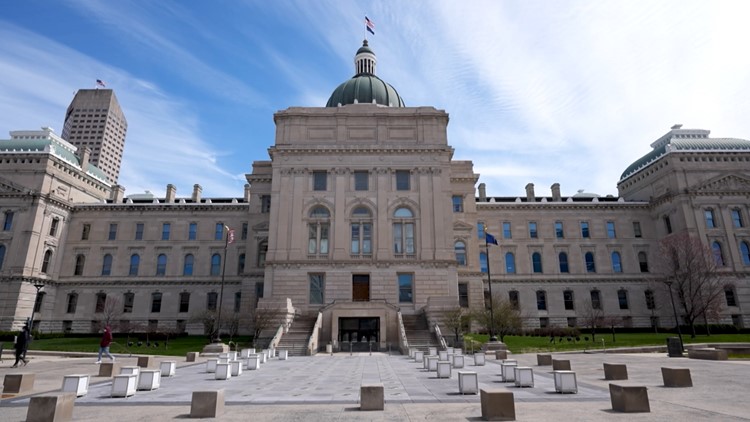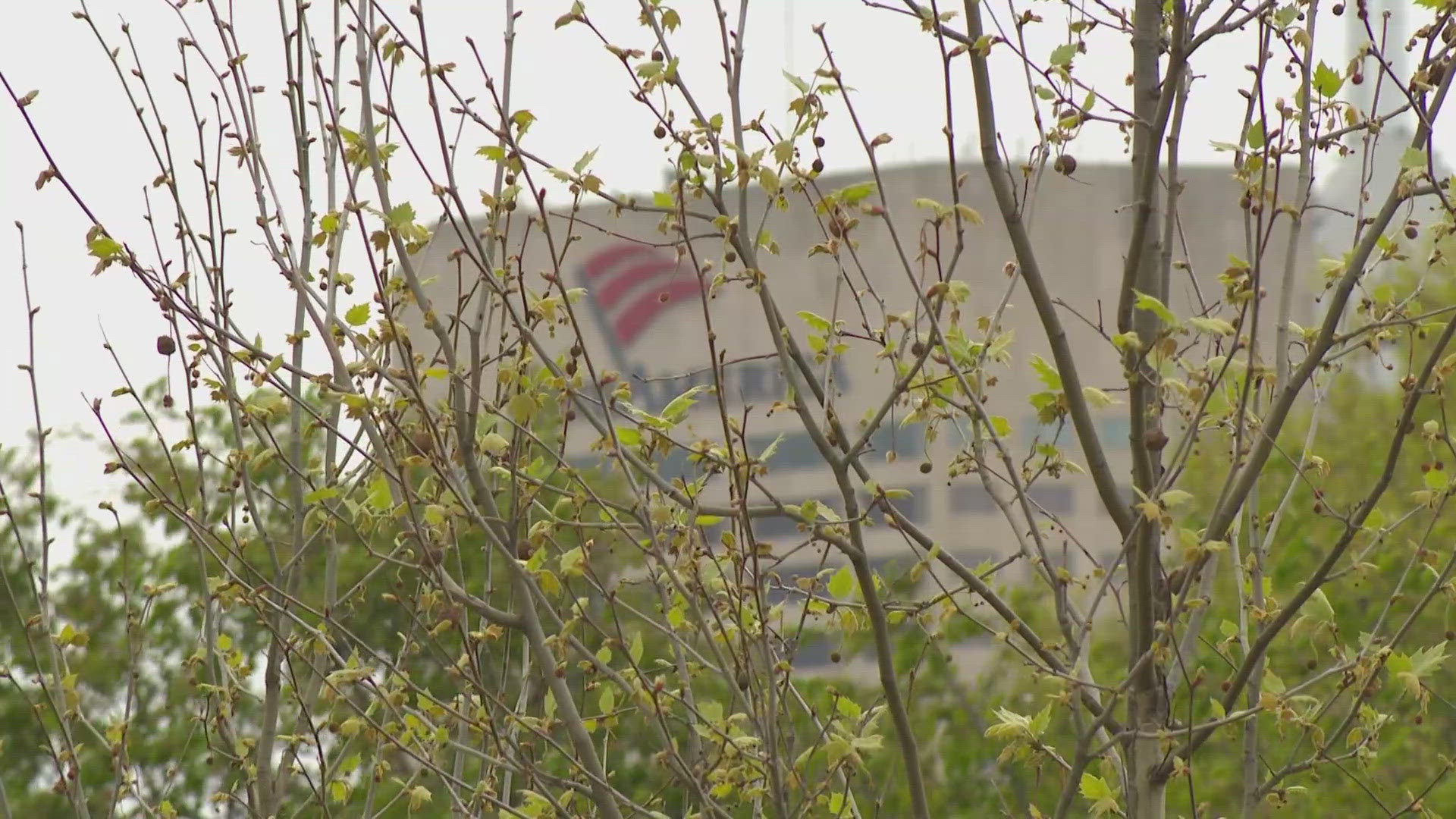INDIANAPOLIS — A bill that originally sought to establish statewide rules for residential sewage disposal systems now includes language that environmental organizations and advocates argue would weaken Indiana’s already negligible protections for critical wetlands.
An amendment to Senate Bill 414 would redefine Class III wetlands, and increase the number of functions a wetland must possess in order to require a permit to develop on that land.
“Because these are the wetlands that have the highest level of protection, that in combination with the passage of Senate Enrolled Act 389 two years ago, means that we are looking at less protection than ever for our state's wetlands,” said Emma Steele with Indiana Forest Alliance, an organization that is against SB 414.
That language was added by Republican Rep. Doug Miller of Elkhart, who is on the board of the Indiana Builders Association, an organization that advocated for the passage of SEA 389 two years ago.
13News reached out to Miller's office for a response, but did not hear back at the time of publication.
In 2021, Gov. Eric Holcomb signed off on controversial Senate Enrolled Act 389, which largely rolled back wetlands protections across the state.
It eliminated a 2003 law that required the Indiana Department of Environmental Management to issue permits for construction and development in state-regulated wetlands, and end enforcement proceedings against landowners accused of violating current law.
Holcomb’s signature on that bill followed his own reservations earlier in the 2021 legislative session, when he said the wetlands repeal was a cause for “concern.” At least 100 organizations also voiced opposition to the bill in the days before it was passed.
But on July 1, 2021, the amendments to Indiana’s State Regulated Wetland Law, as proposed by SEA 389, became effective and ultimately reduced the number of non-federal wetlands regulated by the state.
Right now, wetlands with minimal wildlife, aquatic habitat or hydrologic functions are defined as Class I wetlands. Wetlands with moderate levels of any three functions are Class II, while wetlands with ‘more than minimal’ or those that are one of 20 rare wetland types are Class III.
"Instead of checking, say two out of whatever boxes, or whatever number it is, the wetland needs to check all of those boxes. And so, it's setting this extremely high bar for anything to be considered worth this high level of protection, which just does not reflect the reality of how much these value these wetlands bring to our state," Steele said.
SB 414 is moving through the legislature just months after a 13-member Indiana Wetlands Task Force reiterated the loss of wetlands is costing Hoosiers in more ways than one.
They found while legislation that loosens wetland protections provides farmers and developers with some financial benefits in the short term, they come at the cost of significant long-term loses precipitated by flooding caused from removing wetlands.
Flooding across the state, they found, was also becoming worse because of the historical and cumulative loss of Indiana wetlands. According to the Indiana Department of Environmental Management, only 800,000 acres of wetlands remain in the entire state.
"We need to stop the loss of existing wetlands while restoring or replacing wetlands on the landscape through both regulatory and non-regulatory approaches and incentives. Pro-active interventions upstream in watersheds are more effective than mitigation alone," the task force cautioned in their final 2022 report.
None of the measures proposed by the task force to protect wetlands have actually made their way into proposed laws for the 2023 legislative session.
"Just last year, a legislatively-appointed State Wetlands Task Force produced a set of recommendations which clearly state the need to do everything possible to protect our remaining wetlands. The Alliance served on that task force, and devoted many hours over several months in order to develop an approach to wetland management that is both practical and impactful. Our recommendations were ignored here," said Jill Hoffman, who is the Executive Director of White River Alliance against SB 414 in a statement to 13News.
That taskforce report also took aim at the homebuilding industry, specifically Jeff Thomas of Oakmont Development, who the taskforce said was the representative from the homebuilding industry, but who they claim failed to attend any meetings or provide input.
The White River Alliance also criticized the homebuilding industry's lack of representation at those meetings.
"The Indiana Builders Association, who serves in the legislature and introduced this amendment to an unrelated bill, had a seat on the State Wetlands Task Force and chose not to participate. The task force would’ve been the perfect place to vet this idea and find a compromise. Instead, they engaged in the worst kind of undemocratic, special interest law making, done for the benefit of a single special-interest group, and conducted so as to prevent any other interest groups from providing testimony about this proposed change," Hoffman said.
That taskforce report also said the state needed more funding for wetland protection.
The Hoosier Environmental Council has also opposed the amendment in SB 414. Democrats argued the amendment to SB 414 came so late they did not have time to argue it. They also said Indiana residents could not argue the amendment at the statehouse.
SB 414 now heads to the Senate chamber for consideration.



